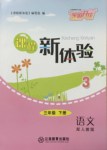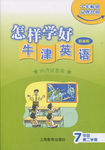题目内容
| |||||||||||||||||||||||||||||||||||||||||||||||||||||||||||||||||||||||||||||||||||||||||||||||||||||||||||||||||||||||||||||||||||||||||||||||||||||||||||||||||||||||||||||||||||||||||||||||||||||||||||||||||||||||||||||||||||||||||||||||||||||||||||||||||||||||||||||||||||||||||||
解析:
(1) |
sometimes意为“有时”,通读全文后会得出答案。 |
(2) |
从本段可以看出,当时我正在Durham University学习。因为谈到我毕业后还申请了几个大学来进一步学习。 |
(3) |
从后文可以看出我每天都到传达室去等候来自其他大学的对我的申请表的答复,所以此处应该是我打算毕业后再去深造。plan to do sth.意为“计划做某事”,而manage to do sth.表示已经成功地做了某事。 |
(4) |
send…to…“向某处发送”。从文中可以看出我向好几个大学发出了申请书。 |
(5) |
根据上一句中的“go to another university”和下文的“He told me that a letter had arrived in his office for you from Manchester University”可知答案。 |
(6) |
reply意为“答复”;report意思是“报道,报告”,而chance的意思是“机会”,都不符合句意。 |
(7) |
从后面“with a toothbrush in hand”和“I even didn’t 28 my breakfast and rushed to Mr.G’s office…”这两句可知是早饭。 |
(8) |
still意为“仍然,还”。yet,already常用于完成时态,yet常用在疑问句和否定句中,不合题意。even意为“甚至”,表强调,但本题没有此意。结合题意“他手里还有牙刷”,可知答案为still。 |
(9) |
as if…指“好像……,似乎……”。A项后面不能接句子;after“在……之后”;while“当……时候”,都不符合当时情景,这个人似乎怕忘了这个重要的消息,所以他牙还没刷就来告诉我这个事情。 |
(10) |
message在此处作“口信”讲。sign指“迹象”;letter意为“信”;notice指“布告,通知”,都不合题意。 |
(11) |
as soon as“一……就……”,从属连词,在此处连接时间状语从句。其他选项不符合语境。 |
(12) |
jump with joy“兴高采烈,高兴得跳起来”,是固定搭配。 |
(13) |
finish完成一般的事情,是个常用词,其搭配是finish sth./doing sth.;complete“完成、完备”,指完成大的工程/项目时用。complete还有补充完整的意思。 |
(14) |
be in“在这儿”,此处作“在办公室里”讲。 |
(15) |
根据句法结构此处应用explain一词。explain的用法是:explain sth.to sb.或explain to sb.,而tell后常跟双宾语或复合宾语,即tell sb.to do sth.或tell sb.sth.。 |
(16) |
an obvious place指“显而易见的地方”。 |
(17) |
修饰人时常用-ed结尾的形容词,而修饰物时常用-ing结尾的形容词。 |
(18) |
从后句可知,她是没有锁上门。其他三项加上动词原形都表示动作已完成了。 |
(19) |
suddenly=all of a sudden“突然”。从后面“眼前一亮”可知动作发生地较突然。 |
(20) |
根据题意,这个秘书是很兴奋的,所以此处选“brighten”“眼前一亮”。 |

 芝麻开花课程新体验系列答案
芝麻开花课程新体验系列答案 怎样学好牛津英语系列答案
怎样学好牛津英语系列答案完形填空:
阅读下面短文,掌握其大意,然后从1~25各题所给的四个选项中,选出一个最佳答案。
One summer night Ludwig Van Beethoven (贝多芬) took a walk in the suburbs (郊区) of Bonn. Suddenly the night breeze brought to his ears the notes from a piano. He stopped 1 carefully and found 2 was his “F Sonata” (《F调奏鸣曲》) . He 3 the music and came to a small house. There 4 the window he saw a girl 5 a very old 6 ;a young 7 was making shoes 8 her. He pushed the door 9 and went in. The host 10 him warmly and told him that the girl was his sister, 11 was blind but very 12 of musiC. They could not 13 to send her to a master. So she was only trying to play 14 music she heard the neighbour 15 . She knew it was a work of a great 16 . Beethoven was very much 17 . Suddenly the candle was blown out. Moonlight 18 on the 19 slender figure (苗条的身材) . Beethoven felt he could no longer restrain (克制) himself and said he would play 20 music for them. He played so 21 that the brother and sister were amazed (使惊讶) . But before they had time to ask him to play another 22 . Beethoven was gone. Beethoven went 23 and wrote 24 he had just 25 . That was his famous “Clair de Lune” (《月光曲》) .
|
1. A. listen |
B. to hear |
C. hear |
D. to listen |
[ ] |
|
2. A. that |
B. one |
C. it |
D. this |
[ ] |
|
3. A. to follow |
B. followed |
C. follow |
D. following |
[ ] |
|
4. A. through |
B. out |
C. passing |
D. past |
[ ] |
|
5. A. playing |
B. to play |
C. played |
D. play |
[ ] |
|
6. A. music |
B. violin |
C. song |
D. piano |
[ ] |
|
7. A. girl |
B. lady |
C. man |
D. boy |
[ ] |
|
8. A. from |
B. beside |
C. against |
D. to |
[ ] |
|
9. A. open |
B. opened |
C. opening |
D. to open |
[ ] |
|
10. A. accepted |
B. received |
C. got |
D. pleased |
[ ] |
|
11. A. which |
B. whom |
C. who |
D. that |
[ ] |
|
12. A. glad |
B. like |
C. fond |
D. care |
[ ] |
|
13. A. able |
B. want |
C. afford |
D. support |
[ ] |
|
14. A. a few |
B. some |
C. several |
D. many |
[ ] |
|
15. A. to play |
B. playing |
C. played |
D. play |
[ ] |
|
16. A. writer |
B. poet |
C. composer |
D. singer |
[ ] |
|
17. A. moved |
B. moving |
C. move |
D. to move |
[ ] |
|
18. A. struck |
B. shone |
C. shines |
D. strikes |
[ ] |
|
19. A. Beethoven's |
B. brother's |
C. girl's |
D. other |
[ ] |
|
20. A. some |
B. a few |
C. many |
D. little |
[ ] |
|
21. A. hard |
B. wonderfully |
C. happily |
D. excitedly |
[ ] |
|
22. A. one |
B. music |
C. work |
D. piece |
[ ] |
|
23. A. out |
B. in |
C. home |
D. on |
[ ] |
|
24. A. which |
B. what |
C. that |
D. as |
[ ] |
25. A. played |
B. heard |
C. wrote |
D. learned |
[ ] |
| |||||||||||||||||||||||||||||||||||||||||||||||||||||||||||||||||||||||||||||||||||||||||||||||||||||||||||||||||||||||||||||||||||||||||||||||||||||||||||||||||||||||||||||||||||||||||||||||||||||||||||||||||||||||||||||||||||||||||||||||||||||||||||||||||||||||||||||||||||||||||||
| |||||||||||||||||||||||||||||||||||||||||||||||||||||||||||||||||||||||||||||||||||||||||||||||||||||||||||||||||||||||||||||||||||||||||||||||||||||||||||||||||||||||||||||||||||||||||||||||||||||||||||||||||||||||||||||||||||||||||||||||||||||||||||||||||||||||||||||||||||||||||||
| |||||||||||||||||||||||||||||||||||||||||||||||||||||||||||||||||||||||||||||||||||||||||||||||||||||||||||||||||||||||||||||||||||||||||||||||||||||||||||||||||||||||||||||||||||||||||||||||||||||||||||||||||||||||||||||||||||||||||||||||||||||||||||||||||||||||||||||||||||||||||||
| |||||||||||||||||||||||||||||||||||||||||||||||||||||||||||||||||||||||||||||||||||||||||||||||||||||||||||||||||||||||||||||||||||||||||||||||||||||||||||||||||||||||||||||||||||||||||||||||||||||||||||||||||||||||||||||||||||||||||||||||||||||||||||||||||||||||||||||||||||||||||||